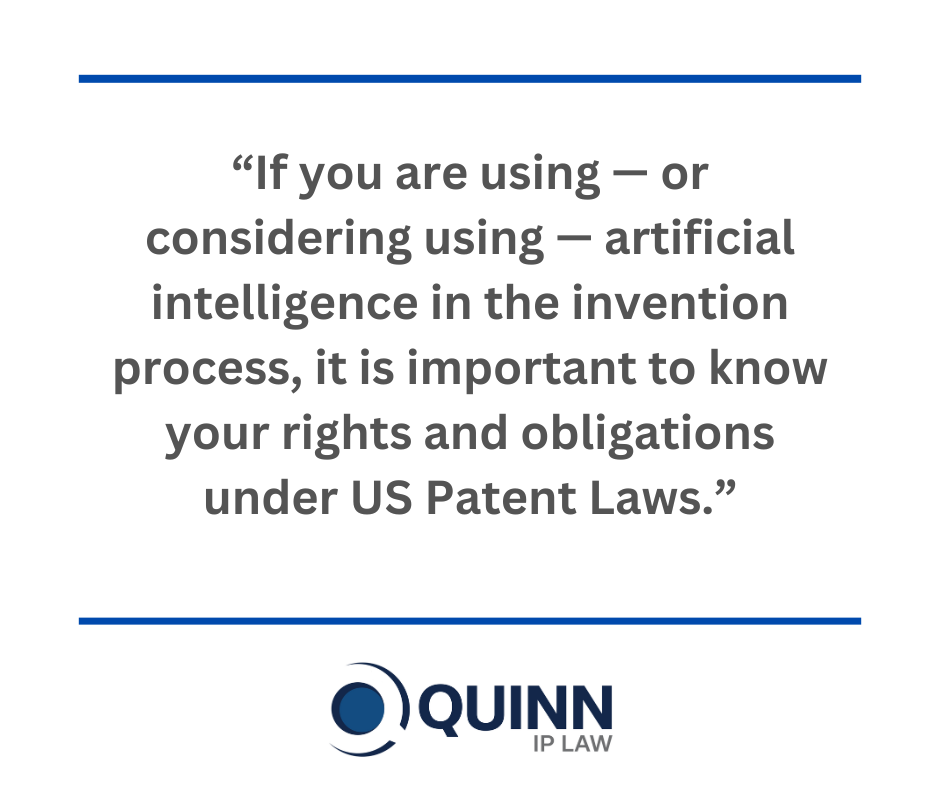On February 13, 2024, the U.S. Patent and Trademark Office (USPTO) issued guidance regarding the determination of “inventorship” with respect to artificial-intelligence-assisted inventions. This guidance, explained in detail here, is important information for inventors relying on artificial intelligence in the creation of their inventions. These guidelines explain that “while AI-assisted inventions are not categorically unpatentable, the inventorship analysis should focus on human contributions, as patents function to incentivize and reward human ingenuity.”
The chief takeaways could be summarized as follows:
- Only a human can be considered an inventor under U.S. Patent Law. If a “natural person” uses AI to assist in the invention process, such person can still receive patent protection on the invention. However, applications and patents must not list any entity that is not a natural person as an inventor or joint inventor, even if an AI system may have been instrumental in the creation of the claimed invention. While AI systems cannot be listed as inventors, the use of an AI system by a natural person does not preclude that person from qualifying as an inventor or joint inventor if the natural person significantly contributed to the claimed invention, including responsibility for conception of the invention.
- The guidance references a three-part test to determine whether a person made a “significant contribution”. An inventor must have: (1) contributed significantly to the conception of the invention, (2) made a contribution that is not insignificant in quality, and (3) do more than merely explain well-known concepts or the current state of the art. Courts have found that a failure to meet any one of these factors could preclude that person from being named an inventor.
- Inventors have a duty to disclose the involvement of AI in the invention process. All individuals associated with the filing and prosecution of a patent application — especially the “natural person” inventor — has a duty to disclose to the USPTO information that raises a prima facie case of unpatentability due to improper inventorship. This includes providing information about the AI system used and its role in the invention. AI-generated inventions are subject to the same patentability requirements as inventions created by humans, such as novelty, non-obviousness, and usefulness.
- Every claim must have been invented by at least one natural inventor. While there is no requirement for a named inventor to contribute to every claim in an application, a natural person must have significantly contributed to each claim in a patent application. In the event of a single person using an AI system to create an invention, that single person must make a significant contribution to every claim in the patent or patent application.
If you are using — or considering using — artificial intelligence in the invention process, it is important to know your rights and obligations under US Patent Laws. This is only a high-level overview of the recently released guidance. How the law applies to your particular use case is something that should be scrutinized on an individual basis with your IP counsel.
Mark Levine, David Nay and Stephen Mahan are Patent Attorneys with Quinn IP Law. To discuss how the application of AI may or may not apply to protecting your own ideas and inventions, call them at (248) 380-9300, or email them at [email protected], [email protected] and [email protected].
